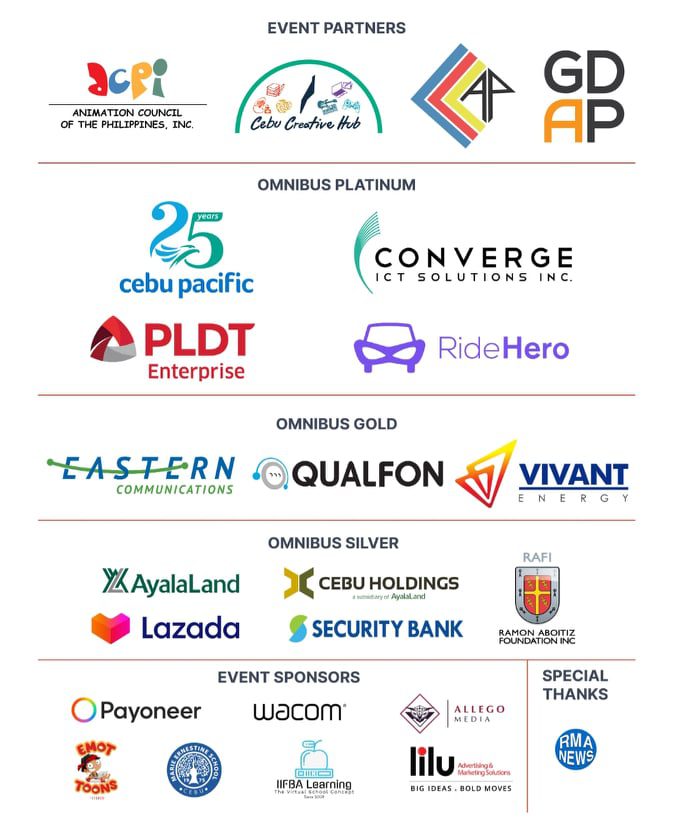The animation industry in Cebu is headed for a bright future as the Cebu Chamber of Commerce and Industry (CCCI) and the Animation Council of the Philippines Inc. (ACPI) signed a memorandum of understanding to cooperate in the development of the industry.
The MOU signing was done virtually during the Cebu Creative Entertainment Week (CEW) Animation Day, held Tuesday.
The agreement intends to formalize the collaboration of CCCI and ACPI to develop the Creative Entertainment industry, specifically Animation.
Both organizations aim to help Cebu contribute 10 percent to the country’s Creative Entertainment Industry, initially targeting around P500-million for Cebu alone.
Cebu Chamber will conduct activities that promote the creative entertainment sector as well as create an ecosystem to promote and support the creatives.
It will also help promote Cebu and the Philippines as a premier site for the development, sale, and distribution of animation products in Asia.
On the other hand, ACPI will coordinate with CCCI in providing training and upskilling opportunities to artists, animators and other relevant talents in the animation sector.
The council will also facilitate connecting Cebuano players to the International Animation Industry Development Pipeline, and assisting in the set up and organization of trade missions.
“We hope that the partnerships we have will open countless opportunities for our creatives in making Cebu a creative entertainment hub in the country,” said Felix Taguiam.
“It is high time for Cebuano animators to have a safe share in the global market,” noted Mike Cubos, CCCI Vice President for Cebu Business Mobilization.
“We seek to build not just an ecosystem for our local talents in Cebu, but also to bring about mechanisms in shaping a feasible creative media fund for them to kick-start productions,” Cubos said.

CCCI Vice President for Cebu Business Mobilization Mr. Michael Cubos
Cebu Chamber is initiating collaborations with national organizations for artists as well as backing of the government on their programs for the creative industry, he added.
Brian Rausch, chief executive officer and founder of House Moves, noted that there’s a need for a Hollywood level Motion Capture and Virtual Production in Asia.
According to Rausch, the House of Moves wants to bring this technology to the Philippines and that he would like to set up a Motion Capture facility in Cebu.
He noted that the Philippines has the creative talent to get this done, adding that the Philippines has to grab this opportunity to have this technology brought here. Otherwise, the country will ‘miss the boat.’
Rausch started in Sony, working on several PlayStation2 games such a God of War and SOCOM. The House of Moves is one of the world’s leading Motion Capture and Virtual Production studios, which has done several AAA game titles and Hollywood Blockbusters. Works include Resident Evil 7, Titanic, Marvel’s Ant Man, Spiderman: Far from Home, and others.
“The talent and skills that are already in Cebu makes it ready for the next step”, noted Marla Rausch, Chief Executive Officer and President of Animation Vertigo.

(L-R) Marla Rausch, Chief Executive Officer and President of Animation Vertigo and Brian Rausch, chief executive officer and founder of House Moves
Established over 10 years ago, Animation Vertigo is a leader in motion capture tracking, editing and animation outsourcing. It provides high quality motion capture data to some of the biggest publishers, developers and animation companies in North America and in Europe.
“It might be baby steps for you, but technology is fast and we all have to use it. I think this is something that is needed, necessary because we don’t want to be left behind,” Ms Rausch said during the Animation Forum.
She stressed that Cebu needs to act now to be able to access the animation market.
“The last thing that we need right now after the devastating pandemic, is to have ourselves hiding behind the door and trying to break down that door. The pandemic brings one big thing. And that is we are all on equal footing. Everybody is trying to get back on its feet. So, let’s not wait,” Ms. Rausch added.
However, she noted that it would take people working together to be able to achieve this. “It takes studios; it takes students, professionals so we can come together and create this creative hub in the Philippines.”
Another speaker, Nestor Palabrica, vice president of Toei Animation Philippines Inc., said the company is considering Cebu as a site for expansion for their operation and production.
“We have plans to expand outside of Manila. If that will be materialized, we cannot think of any other place than Cebu, Palabrica said. Cebu is teeming with talents, he added.
Palabrica also talked about how Toei Philippines started as a joint venture between construction company Engineering Equipment Inc. and Toei Animation Co. Ltd of Japan and eventually became the latter’s wholly-owned subsidiary. It is now doing 70 to 80 percent of Toei’s production work.
He explained that local animation companies could also partner with Japanese firms as long as they find the right partner.
“Aside from having passionate people, it’s also important that you can find the right partner. I know there are many Japanese studios who would like to have partnership with local studios here. What they just want to be assured of is that their partner would have the quality they require and can perform at the level they expect from us,” Palabrica said,
For his part, Juan Miguel Del Rosario, President of ACPI and Toon City (Morph Animation Inc.), stressed the potential of Filipinos as far as the creative industry is concerned.
“It’s really in the DNA of Filipinos to produce world-class artistry. I’m very, very proud of that. This is the reason why we at ACPI, are advocating countryside development of animation studios. We want studios to go outside of Manila because we want to say that Manila does not have the monopoly of artistic capability,” Del Rosario pointed out.
He disclosed that Japan is waiting for the Philippines.
“There has been a study made by them about the potential of the Philippines working for Japanese anime. And there’s none of that in Manila, except for TOEI Philippines. Let’s make Cebu the anime capital of Asia,” Del Rosario said.



Meanwhile, CCCI also plans to promote the video game industry in Cebu, Taguiam stressed during the Video Game Industry forum held Monday.
“We will look into the flourishing industry of video games or online gaming. While it is something that attracts the younger generation, more than the older ones, we cannot deny its impact as a source of economic development. In fact, it is one of the fastest growing industries to date across the globe,” he said.
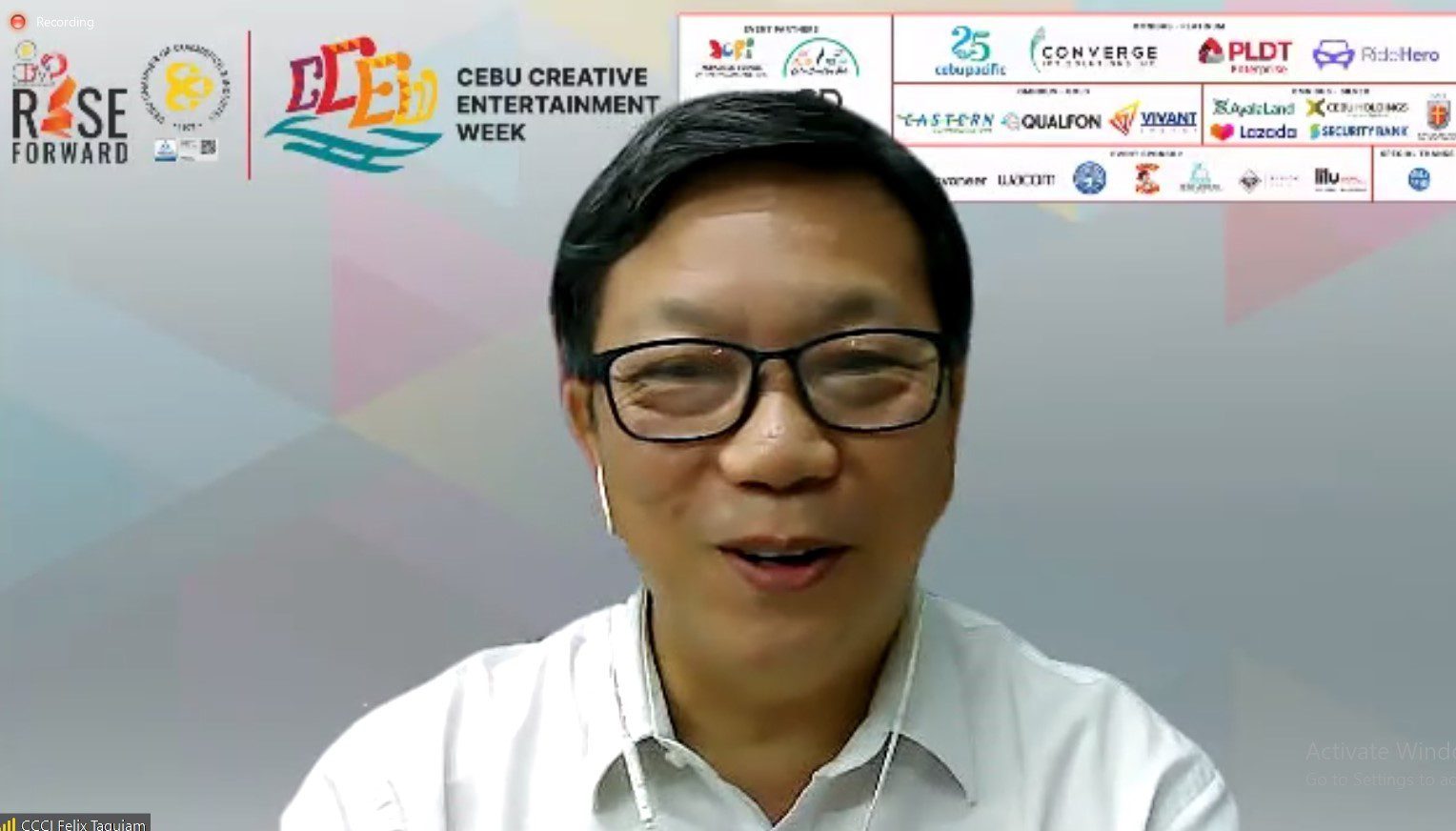
CCCI President Felix Taguiam
According to Taguiam, video games are one of the fastest growing industries to date across the globe. “Even during the pandemic, it has accelerated its operations in digital platforms and continues to thrive today,” he pointed out.
On the other hand, Cubos noted that since the early 2000s, the video gaming industry has been recognized by the government as a high potential segment of the Philippines’ Creative Services industry.
“A recent data released this year indicated that our country currently has more than 40 million active online gamers and this has been on the rise since 2017,” he said. “Last year alone, the industry earnings were placed at $947.1 million.”
James Lo, President of Game Developers Association of the Philippines (GDAP), agreed that there’s potential in Cebu.
“We are here to collaborate with different game developers in Cebu,” Lo said.
He also noted that world-class video games are being made in the Philippines. Top level video games such as Gears of War and other AAA titles have their art assets and backgrounds done n the Philippines, he explained.
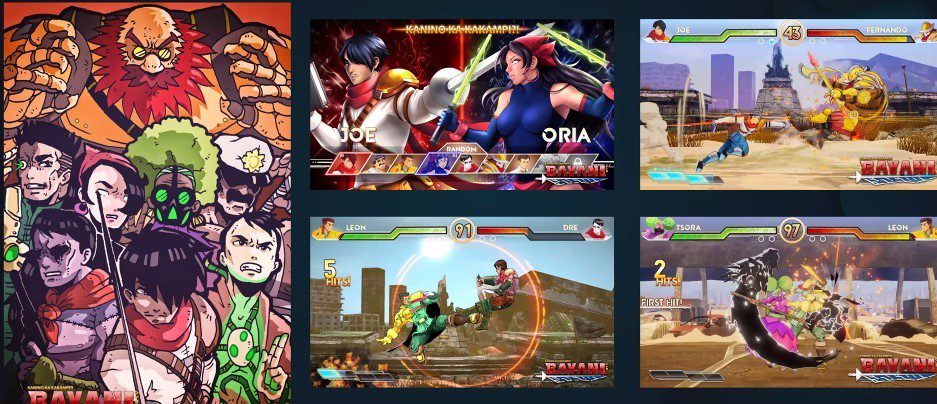
GDAP also showed that original world class video games are also being developed in the Philippines, several of which are being produced by their members, such as Ranida Games, YangYang Mobile, and Taktyl Studios. These original games have received millions of downloads and fans from all across the Philippines and the world.
“GDAP, through its members, can provide mentorship and the association also offers training as well as participation in trade fairs,” Lo said. “We are here to promote companies in Cebu by bringing them to industry events.”
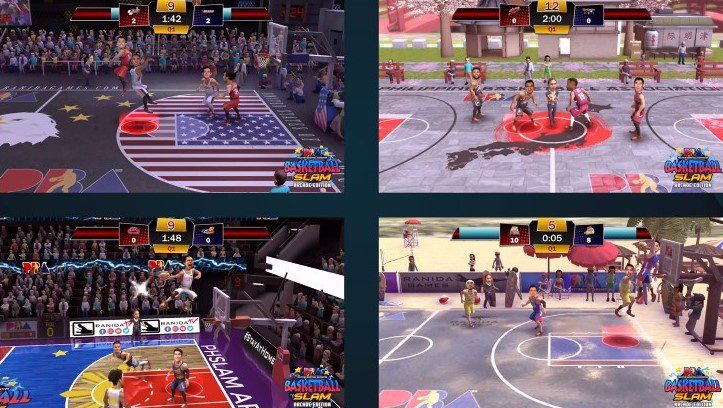
He disclosed that the global game development industry generated $174.9 billion in 2020.
Of this amount, $74.8 billion is from Asia Pacific while only $572 million came from the Philippines, representing 0.33 percent of the global market, he added.
“The industry is here. The opportunity is here. All we have to do is to capitalize on it,” Lo pointed out.
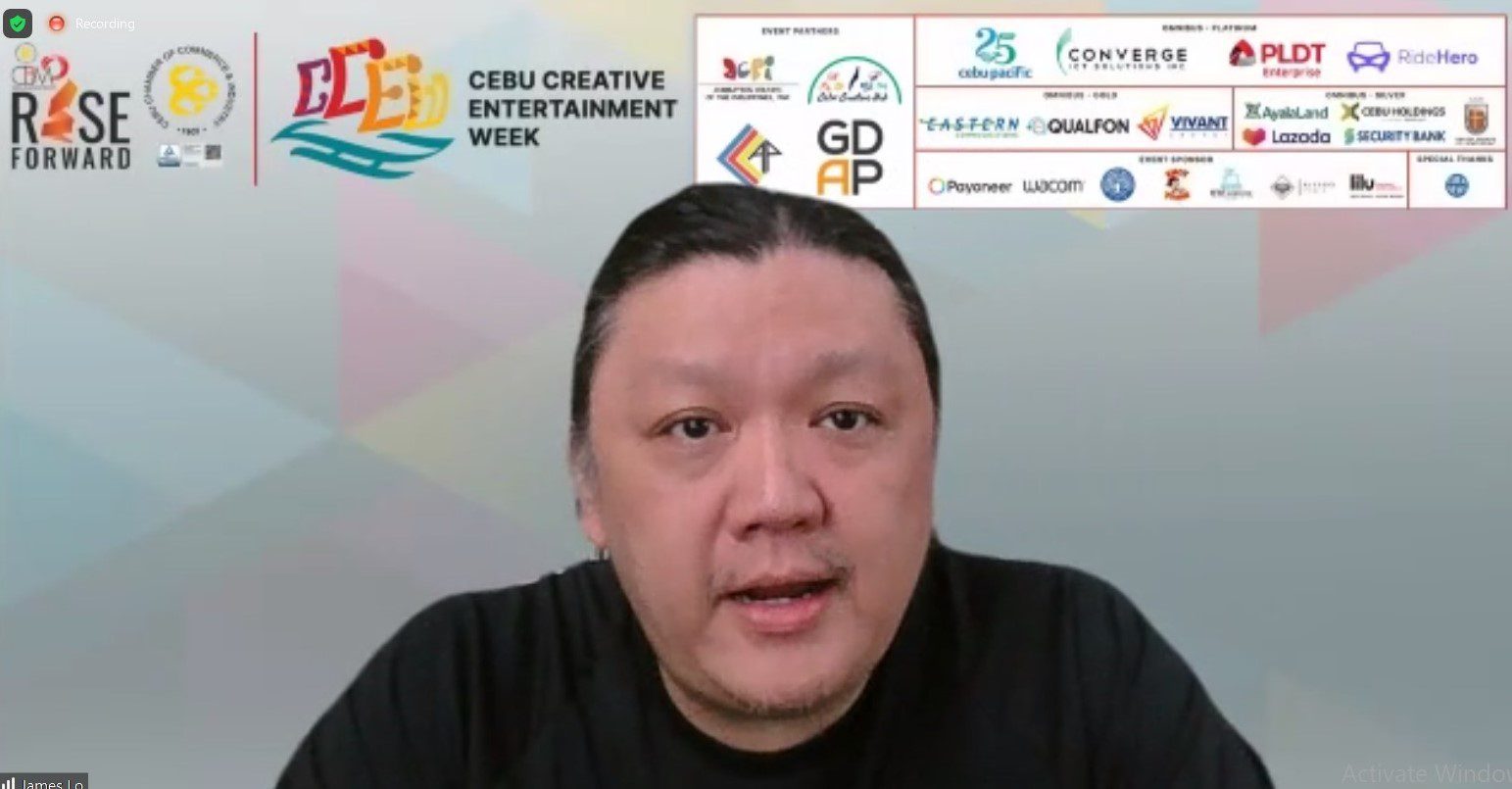
James Lo, President of Game Developers Association of the Philippines (GDAP)
CCCI and GDAP also signed a memorandum of understanding to formalize their collaboration also for the development of the Creative Entertainment as a pillar of Cebu Business.
The chamber will facilitate the growth of the Creative Entertainment Industry with video games as an important sector in order to make Cebu a major hub for the video game industry and its allied fields.
It will cover the areas of the Game Development, E-sports Competition, Video Game Service Work, and Video Games IP Development.
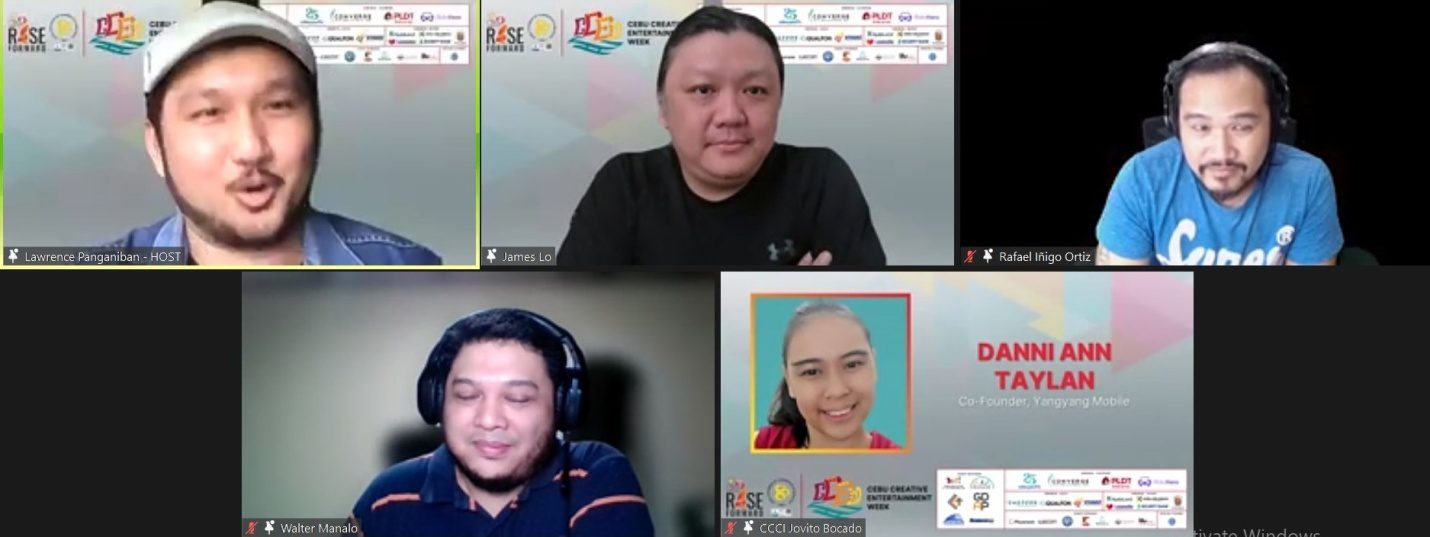
Video Game Industry Speakers & Panelists
GDAP also committed to provide training artists, programmers, technicians, and software developers in the video game sector, and setup proper game development learning resources in Cebu.
The association will also assist in connecting Cebuano Players to the Global Video Game Industry Pipeline.
The two forums are part of the CEW, an activity of the 2021 Cebu Business Month (CBM). The CBM is an annual activity of CCCI.
The CEW is in partnership with the Animation Council of the Philippines Inc. (ACPI), Cebu Creative Hub, and Creative Content Creators Association of the Philippines (SIKAP) and the Game Developers Association of the Philippines (GDAP).
Omnibus Platinum Sponsors are the following: Cebu Pacific Air, Converge ICT Solutions Inc., PLDT Enterprise and RideHero.
Omnibus Gold Sponsors include Eastern Communications, Qualfon Philippines and Vivant Energy Corporation.
Omnibus Silver Sponsors are Ayala Land Inc., Cebu Holdings Inc., Lazada Philippines, Ramon Aboitiz Foundation Inc. and Security Bank Corporation.
The Event Sponsors are Payoneer Philippines Branch, Inc., Wacom Philippines, Allego Media, Emottoons Animation Studio, IIFBA (International Institute Film and Broadcast Arts), Lilu Advertising & Marketing Solutions and Marie Ernestine School.
Special thanks to RMA News as the Media Partner.
For more information, visit the CBM Facebook page or email jovito@cebuchamber.org.
